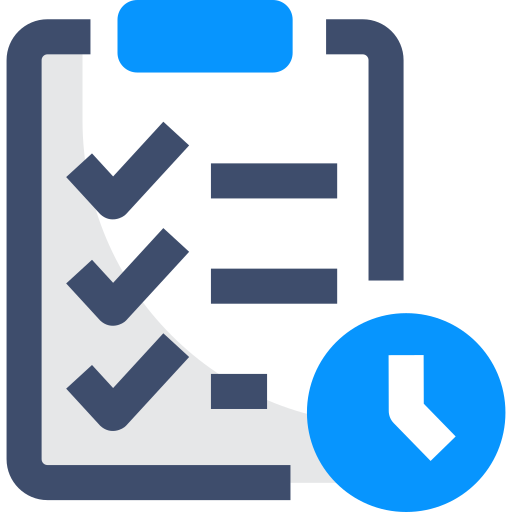How to Hire Foreign Workers for your Business in Canada
Bringing Foreign Workers for Your Business in Canada
The Canadian government offers a variety of immigration programs geared toward the employment of foreign workers. To begin the process, employers must be aware of all available immigration options. If you are a Canadian employer seeking to hire temporary foreign workers, you must take the following four steps:
Determine first if your business requires an LMIA.
Second, obtain an LMIA or submit an LMIA-exempt employment offer;
Third, have the worker apply for a work permit; and
Fourth, inform the worker of what to expect from their application and ensure compliance with the employment conditions.

Determine if Your Organization Requires an LMIA
Before hiring a temporary foreign worker, the majority of employers need an LMIA. Before beginning the hiring process, you must determine if an LMIA is required. In certain situations, employers are not required to apply for an LMIA but must submit an offer of employment through their Employer Portal on the IRCC’s website. Their foreign workers can then apply for a work permit based on an LMIA-exempt offer of employment. Foreign workers are sometimes permitted to work in Canada without a work permit.
Refer to the table below, which details some of the most frequent situations, to determine which procedure your company should consider. The table does not constitute legal advice and is provided for informational purposes only.
LMIA and Work Permit | No LMIA – Work Permit Only | Absence of LMIA, No Work Permit |
Most jobs in Canada require LMIA | Intra-company transferees | Business visitors |
High-wage workers | Entrepreneurs and independent contractors | Athletes and team members |
Low-wage workers | Highly qualified experts | Inspector for aviation accident and incident |
Occupations in high demand | Citizens of the United States, Mexico, Chile, Peru, South Korea, Colombia, Panama, Australia, Singapore, and New Zealand are eligible to participate. | Civil aviation official |
Citizens of the majority of European Union member states | Clergy | |
French-speaking non-natives | Convention coordinators | |
Religious Employees and Staff | Crew | |
Academics Providers of emergency services | Emergency service providers | |
Inspectors and evaluators | ||
specialized witnesses and investigators | ||
Foreign government representatives | ||
Foreign representatives and foreign representatives’ families | ||
Students in healthcare | ||
Judges, referees, and other administrators | ||
Military personnel | ||
Reporters and media crews | ||
The performing arts | ||
Public orators |

2. LMIAs and How to Employ a Foreign Employee with an LMIA
The length of the hiring process for foreign workers varies based on the type of position being filled. A work permit that requires an LMIA could take between three and six months to obtain. A work permit exempt from the LMIA can take anywhere from two weeks to three months to obtain, assuming that the foreign workers your company wishes to hire are on top of their paperwork. A position that doesn’t require a work permit could be faster since all it takes is a visa in good standing.
LMIA is an abbreviation for Labour Market Impact Assessment, which Employment and Social Development Canada (ESDC) mandates for all non-exempt positions. Your company requires a positive LMIA to demonstrate that no Canadian citizen or permanent resident is qualified for the position.
The application process is highly technical and may be complicated, but here is a general 6-step guide for hiring foreign workers with LMIA:
Step 1: Advertise the position two individuals perusing papers
Your company is required to post the vacancy on Job Bank Canada and two additional websites (one national and one local at scope). It is essential to thoroughly review draft job advertisements prior to posting to ensure that all required information is included.
Your business must provide evidence of where, when, and for how long the job was advertised. Your organization must continue advertising on Job Bank and evaluating applicants until you receive a decision regarding your LMIA application. Please note that the process may be altered based on the circumstances of your company.
Step 2: Follow the hiring procedure
Your organization must demonstrate genuine recruitment efforts for Canadian citizens and permanent residents. How do I accomplish this? Follow the standard recruitment procedures (collection of resumes, screening, selection of the best candidates for the interview, and the interviewing process), but be sure to document your efforts. Some employers include requirement efforts reports with their LMIA applications, which provide a summary of each applicant’s background and reasons for rejection from the position in question. You must maintain recruitment and advertising records for no less than six years. You will also be required to provide the outcomes of your recruitment efforts to fill the position.
Third step: Apply to ESDC
Your LMIA application may be submitted up to six months prior to the anticipated start date of employment. Your application materials should include the following:
Form LMIA application for high- or low-paying positions.
Documents demonstrating that your business: (a) has no compliance issues in the past; (b) can fulfill all terms of the job offer; (c) is providing a good or service in Canada; and (d) is offering employment consistent with your business’s needs.
Evidence of recruitment;
Employment contract;
Expenses for processing ($1,000 per worker), if applicable
Once your LMIA application has been submitted, ESDC will process your payment and send you a letter with an LMIA file number. The LMIA processing time varies by stream and ranges between 10 business days and several months.
Step 4: Pass an ESDC interview
You must then successfully complete a phone interview with an ESDC LMIA officer.
The purpose of the conversation is to confirm the LMIA application details, review any modifications that may have occurred since submission, and discuss the recruitment campaign and its results.
Step 5: Receive a decision
The officer will make a determination following the interview, typically within 3 to 5 days. You will be emailed or mailed your decision. Indicate to the ESDC representative during the interview if you wish to receive your decision via email. If the decision is positive, your foreign worker can start the work permit application process. If the decision is negative and you believe it is irrational, you may be able to request that a Program Manager review the decision for accuracy.
Step 6: Assist the worker in submitting a Work Permit application.
The foreign workers you intend to hire can apply for work permits using the LMIA approval letter and Annex A once you receive a favorable decision. You must also provide the worker with a signed employment contract and a Letter of Support for the Visa Office to support the application for a work permit.
In certain situations, your company is exempt from the advertising and recruitment requirements. These cases are based on occupations such as owner-operator, occupations with the highest demand, and temporary positions. ESDC exempts these cases due to their potential long-term impact on the labor market.
ESDC typically takes between three and six months to reach a decision on an LMIA, unless your company’s position falls under one of the expedited streams. These streams include occupations with the highest demand, highest pay, and shortest duration. Using one of these can result in a 10-day LMIA determination.
Applications that are incomplete are neither processed nor returned.
This procedure can cause your company to experience delays, which can then negatively impact your workforce. Your company should seek professional assistance to prevent this from happening with its LMIA application.
If you require assistance with your LMIA application, please contact us.

Get LMIA-Exempt Work Permits
Employers in Canada should consider whether their company is eligible to hire foreign workers without undergoing the lengthy and demanding LMIA process if the LMIA-exempt work permits provide a simpler and more straightforward procedure.
Here is a list of popular immigration programs that permit employers to hire foreign workers without first submitting an LMIA application.
Intra-Company Transferees (ICT)
Multinational corporations are permitted to temporarily transfer employees to their Canadian locations without an LMIA. The ICT work permit category may be a viable option if your business requires skilled workers from foreign affiliates.
This program is only open to employees who have worked full-time for the company for at least one year and who possess specialized knowledge or an executive or managerial position. The ICT Specialized Knowledge worker must possess “knowledge at an expert level” and “proprietary knowledge of the company’s product, service, research, equipment, techniques, or management.” See IRCC’s instructions below for additional information.
Francophone Qualified Employees
If your business is located outside of Quebec and your foreign employee speaks French fluently, you may wish to apply for the Francophone Mobility Program (Mobilité Francophone Canada). To qualify for this program, your company and foreign employee must meet the following criteria:
- The foreign employee speaks French at a CLB 7 level (Canadian Language Benchmark). The Test d’évaluation de franais (TEF) or Test de connaissance du franais (TCF) may be required if the applicant comes from a country where French is not the official language.
- The employment of the foreign national is located in a province or territory other than Quebec.
- The job opening is in a skilled occupation (NOC 0, A, or B), and the foreign worker is qualified to perform the essential duties of the position.
In 29 countries, French is an official language, placing it in second place behind English. In alphabetical order, the 29 countries are as follows: Belgium, Benin, Burkina Faso, Burundi, Cameroon, Canada, Chad, Ivory Coast, Democratic Republic of the Congo, Djibouti, Equatorial Guinea, France, Haiti, Luxembourg, Madagascar, Mali, Monaco, Niger, Rwanda, Senegal, Seychelles, Togo, and Vanuatu.
International Commerce Accords
Canada is a signatory to a number of international Free Trade Agreements (FTAs) that make it easier for skilled professionals to work temporarily in Canada. The majority of free trade agreements permit four categories of foreign workers to work in Canada without an LMIA: business visitors, professionals, intra-company transferees, and traders and investors.
If your foreign employee is a citizen of the following nations, you may be eligible to apply for a work permit exempt from the LMIA:
- United States of America and Mexico utilizing CUSMA, the new North American Free Trade Agreement (NAFTA);
- Canada-Chile Free Trade Agreement (CCFTA);
- Canada-Peru Free Trade Agreement (CPFTA);
- Canada-Colombia Free Trade Agreement (CCFTA);
- Canada-Korea Free Trade Agreement (CKFTA).
- EU citizens: Austria, Belgium, Bulgaria, Croatia, Republic of Cyprus, Czech Republic, Denmark, Estonia, Finland, France, Germany, Greece, Hungary, Ireland, Italy, Latvia, Lithuania, Luxembourg, Malta, Netherlands, Poland, Portugal, Romania, Slovakia, Slovenia, Spain, Sweden, and the United Kingdom utilizing the Comprehensive Economic and Trade Agreement (CETA);
- Panama utilizing the Canada-Panama Free Trade Agreement; Australia, New Zealand, and Japan utilizing the Comprehensive Economic and Trade Agreement (CETA);
- and Panama utilizing (CPTPP)
- A national of any WTO-member nation for specific occupations under the GATS;
Important Advantages of Work Permits
Significant Benefit Work Permits are frequently viewed as a last resort, particularly for those who have no choice but to request one due to unforeseen circumstances. To qualify for this program, your company must demonstrate that a foreign worker will provide Canada with significant social, cultural, or economic benefits.
This program may be an excellent option for bringing in workers with highly specialized knowledge who will contribute to the Canadian economy by utilizing their specialized skills and experience, such as technical workers, creative and performing artists, self-employed engineers, etc. Additionally, keep in mind that this work permit is typically issued for shorter durations.
Reciprocal Employment
This exemption permits foreign workers to work in Canada in certain industries where Canadians have comparable employment opportunities in other countries. For instance, professional athletes and coaches working with the Canadian national team, professors, guest lecturers, and exchange students.
Additionally, multinational corporations can benefit from this type of work permit. To qualify, the Employer must provide evidence of reciprocity. It can be demonstrated by an employment contract (if it provides evidence of reciprocity), an HR Global Mobility Policy, and/or other documents that demonstrate that Canadian foreign workers benefit from the ability to travel abroad within the organization.
Working without a valid work permit
In a variety of circumstances, your foreign talent can work in Canada without a Work Permit. However, depending on their country of origin, the worker may still require a temporary entry visa to Canada.
In the following instances, foreign nationals may perform work in Canada without a work permit:
- Business Visitors
- Athletes and team members
- Aviation accident or incident inspector
- Civil aviation inspector
- Clergy
- Convention organizers
- Crew
- Emergency service providers
- Examiners and evaluators
- Expert witnesses or investigators
- Foreign government officers
- Foreign representatives and family members of foreign representatives
- Health care students
- Judges, referees and similar officials
- Military personne
- News reporters, media crews
- Performing artists
- Public speakers
Business Guests
A business visitor is an individual who comes to Canada for international business activities (such as looking for ways to expand their business, invest, or develop new business relationships) but does not enter the Canadian labor market. For visitors to Canada on business, applicants must provide the following:
- The primary source of worker’s compensation will continue to be located outside of Canada.
- The principal workplace is situated outside of Canada.
Activities that business travelers to Canada may engage in without a work permit:
- Giving after-sales service (managing, not doing hands-on labour)
- Training or instructing employees of a foreign company’s Canadian branch
- Purchasing Canadian goods or services on behalf of a foreign organization or government
- Accepting orders for products and services
- Attending meetings, conventions, conferences, or trade fairs
Athletes and Members of a Team
Individually or as a team, professional or amateur athletes may travel to Canada to participate in sporting events or activities. IRCC provides the following examples of people who may qualify for this exemption:
- Canadian amateur athletes on teams (includes major junior level and lower level teams)
- Foreign animal owners enter their pets in a show (e.g. dog handlers)
- Jockeys who race horses from stables located abroad Racing car drivers
- Participants in professional team tryouts
- Foreign coaches and trainers of foreign athletes and other key team members competing in Canada
Determining which criteria your company must meet in order to hire foreign workers is difficult and can be intimidating when running a Canadian business. There are six distinct types of work permits, each with distinct requirements.
Unless your company employs a specific category of individuals, you should anticipate undergoing the LMIA process until you receive alternative legal counsel.
The first step towards moving to Canada is to get an assessment of your specific situation. Call us today at +1 613.222.7154 for an assessment to see if you are eligible to move to Canada, or fill out our online assessment form.








